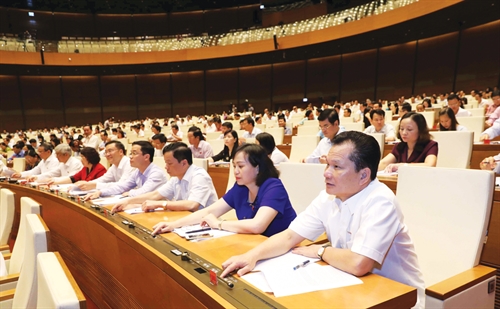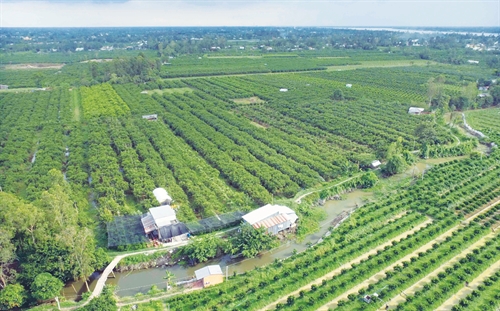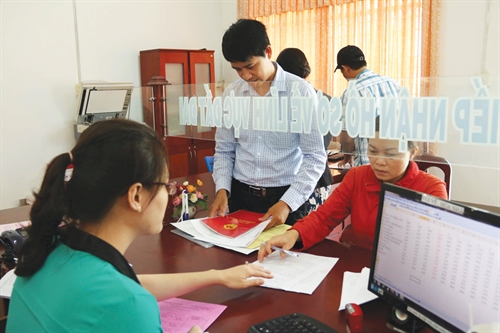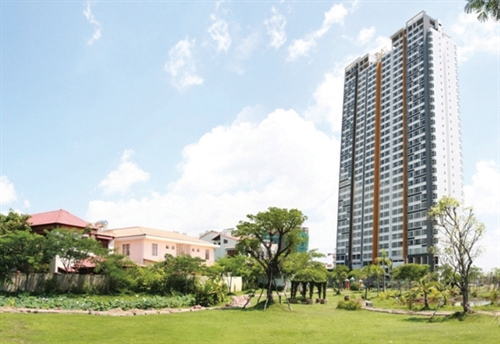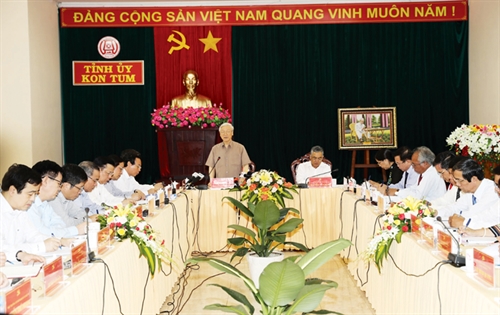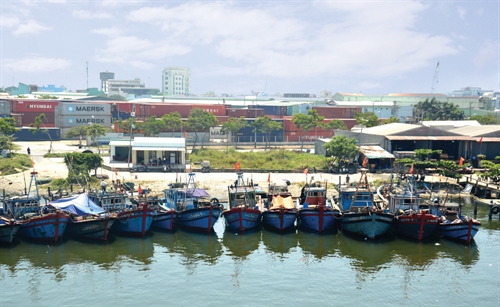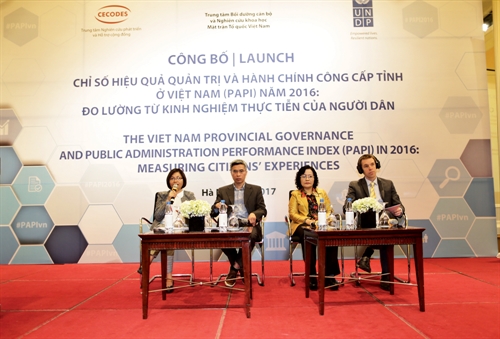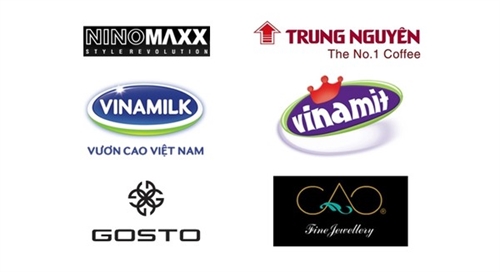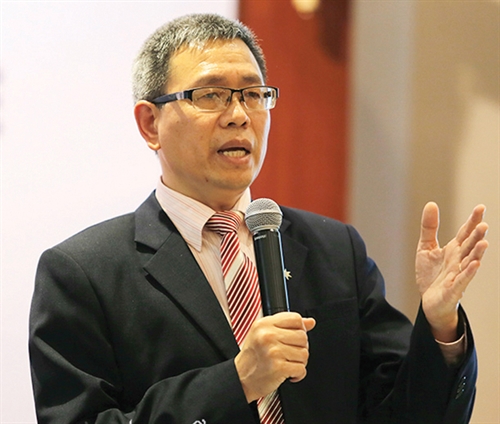 |
The current Law on Intellectual Property of Vietnam was officially enacted in July 2006 and revised in 2009. After 10 years of implementation, the Law has affirmed its important role as a legal corridor for the establishment, exploitation and protection of intellectual property rights. It has, however, also revealed several shortcomings.
Le Ngoc Lam, Deputy Director of the National Office of Intellectual Property of Vietnam (NOIP) of the Ministry of Science and Technology, talks with Hai Quan (Customs) newspaper on revision of the Law.
Could you assess the implementation of the Law on Intellectual Property over the past decade?
After 10 years of implementing the Law and many sub-law documents issued to guide and support its implementation, organizations, individuals and businesses have become aware of IP rights and made use of these rights to create and protect their intellectual assets not only at home but abroad as well. Through these activities, businesses have gained a firm footing in the domestic and international markets.
The obvious evidence is that IP rights registration has become more and more popular. The number of IP rights registration applications has increased nearly 50 percent compared to the period before the enactment of the Law. At present, the number of applications for protection of IP rights filed by domestic businesses and foreign-invested enterprises operating in the country with the NOIP sees an annual growth of 10-15 percent. It can be said that businesses have so far heightened their sense of protecting their IP assets not only in the domestic market but also overseas.
The sense of building and protecting brands for local specialities, special farm produce and traditional craft villages has also been remarkably increased. This once again affirms the important role of IP in the protection of local brands.
However, despite the fact that IP regulations have been widely disseminated among the public, the awareness about IP rights among the population in general and the business community in particular remains below expectations, leading to many IP rights infringements, both intentional and unintentional. Many businesses still delay or even neglect the registration of IP rights for their own products, thus giving rise to IP rights-related disputes.
In your opinion, what are limitations of IP rights enforcement activities?
Currently, IP rights enforcement activities are facing many problems. The IP rights enforcement function belongs to multiple state management agencies. This situation makes enterprises confused about which agency they should contact for help in exercising their IP rights.
In addition, as businesses tend to be afraid to go to court, they often knock on the doors of administrative agencies to seek protection of their rights. To some extent, the administrative settlement of IP rights infringements is swift and cost saving. But it creates a burden on state agencies so that the effectiveness is not high.
Another problem is that the processing of IP rights registration applications at the NOIP is still time-consuming and, as a result, there remain a great number of applications left unprocessed. There are several reasons behind this situation. First, the processes and procedures for assessing IP right registration applications have not yet been renovated. Second, reform of administrative procedures and simplification of processes related to the establishment of industrial property rights remain slow. Third, a number of regulations are unspecific and unclear, for example, those on registration of inventions of usage forms of pharmaceuticals. Fourth, human resources and facilities, especially information technology systems, serving the processing and appraisal of IP rights registration applications, are insufficient, failing to meet work requirements. And last but not least, the quality of support systems such as the industrial property representation system, remains poor.
What are directions for revising the Law on Intellectual Property to redress the above shortcomings and catch up with the realities in IP rights enforcement?
Vietnam has participated the Trans-Pacific Partnership Agreement (TPP) and other free trade agreements (FTAs). This means that the country is striving to reach advanced IP right protection standards in the region and the world in order to create a sound business environment to attract investment in a stable and long-term manner. However, fulfillment of international IP commitments requires huge efforts in all aspects, particularly reform of the domestic law system.
Not only does Vietnam need to revise specific legal provisions but it has to change the structure of the legal system. Specifically, it is necessary to shift from administrative sanction to criminal punishment for a wide range of IP rights infringements.
In my opinion, in order to implement Vietnam’s commitments to FTAs and further foster the establishment, management and development of intellectual assets, the Law on Intellectual Property should be revised to address all existing shortcomings and limitations, some of which stem from the local culture and some are required by international commitments.
With a view to improving the effectiveness of the IP system, it is necessary to further build capacity for both state management agencies and IP rights enforcement bodies. In addition, socio-economic policies should be devised and implemented in a way that enable businesses to cope with negative impacts of strict IP protection requirements. Awareness of the public and the business cycle should be further raised so as to create a sound business environment where IP rights are respected for sustainable development.-
| According to the Ministry of Science and Technology’s report, regarding copyright and related rights, from 2006 to 2015, the Copyright Office of Vietnam had granted 43,321 certificates of registration of copyright and 129 certificates of registration of related rights. Regarding plant variety rights, since the enactment of the IP Law, the Cultivation Department had received 927 applications and granted 432 titles of protection of plant variety rights. In 2016 alone, the NOIP received 403,914 applications for establishment of rights over subject matters of industrial property rights and granted 231,765 titles of protection. Also in the same year, the office received 11,349 complaints related to establishment of industrial property rights, of which it managed to settle 6,475. Regarding infringements upon IP rights over computer software, the Culture, Sports and Tourism Inspectorate had inspected 541 enterprises with 27,602 computers. In these inspections, it issued 499 decisions sanctioning administrative violations with a total fine of over VND 8.6 billion. With regard to violations in the digital environment, the Inspectorate had imposed a total fine of nearly VND 230 million on companies for their acts of storing, providing and disseminating to the public via their websites a great quantity of recordings without owners’ permission, in addition to forcing them to remove violating files from their servers. With respect to handling industrial property rights infringements, in the 2006-2016 period, market management agencies had handled 179,857 cases involving counterfeit goods and IP rights-infringing goods, imposing a total fine of VND 591 million. Meanwhile, the Ministry of Science and Technology’s Inspectorate had conducted 386 industrial property-related inspections and administratively handled 269 cases with a total fine of VND 7.7 billion. Statistics provided by the court system show that the number of disputes over and infringements of IP rights which have been brought to the court for civil adjudication is very modest compared to tens of thousands of cases which have been handled administratively. From July 1 to September 9, 2016 alone, the court system received 168 cases of IP rights-related disputes, including 158 cases related to copyright and 10 cases involving industrial property rights. The number of IP infringements which were criminally handled was even fewer. Out of 21 cases received, courts nationwide heard 13 cases involving IP rights-related crimes. By December 31, 2016, the country had a total of 172 industrial property representation service organizations with 310 industrial property representation practitioners. The number of industrial property registration applications filed via these organizations is relatively high, for example, accounting for 63 percent of the total number of applications filed with the NOIP in 2014.- |

